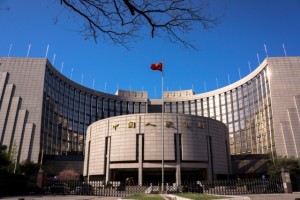
The Hong Kong dollar on Friday posted its biggest gain against the US dollar since 2003, over concerns about tighter liquidity in the city, after the People’s Bank of China announced it would issue bills in the city.
“The issuance of PBOC bills in Hong Kong aims to enrich the spectrum of renminbi financial products of high credit rating in Hong Kong, improve the yield curve of renminbi bonds in Hong Kong and support the development of offshore renminbi business in Hong Kong,” the Chinese central bank said in a statement.
“There’s a stampede of unwinding of arbitrage trades, which is creating a domino effect of tighter liquidity,” said Jasper Lo, chief investment strategist at Eddid Securities and Futures. “It really is a historical day for the Hong Kong dollar.”
Lo said tighter liquidity would push up interest rates ahead of the expected interest rate increase by the US Federal Reserve next week.
The currency had been hovering near the weak end of its peg against the US dollar this year, forcing the HKMA to spend HK$95 billion to defend it in the currency markets.
Stephen Innes, head of trading at Oanda, said that while the market reaction had taken a tremendous amount of pressure off the currency peg, it was a worrisome sign for property investors nonetheless.
Liquidity at Hong Kong banks is likely to remain tight for the foreseeable future, until the PBOC’s intentions are clear, which would bring the soaring real estate prices in Hong Kong closer to a tipping point given the highly leveraged nature of the city’s property market.
“We are going to see more PBOC presence in Hong Kong money markets after the memorandum … and the PBOC will probably continue taping and draining the Hong Kong money markets and pushing rates, which is an ominous sign for property markets,” said Innes.

